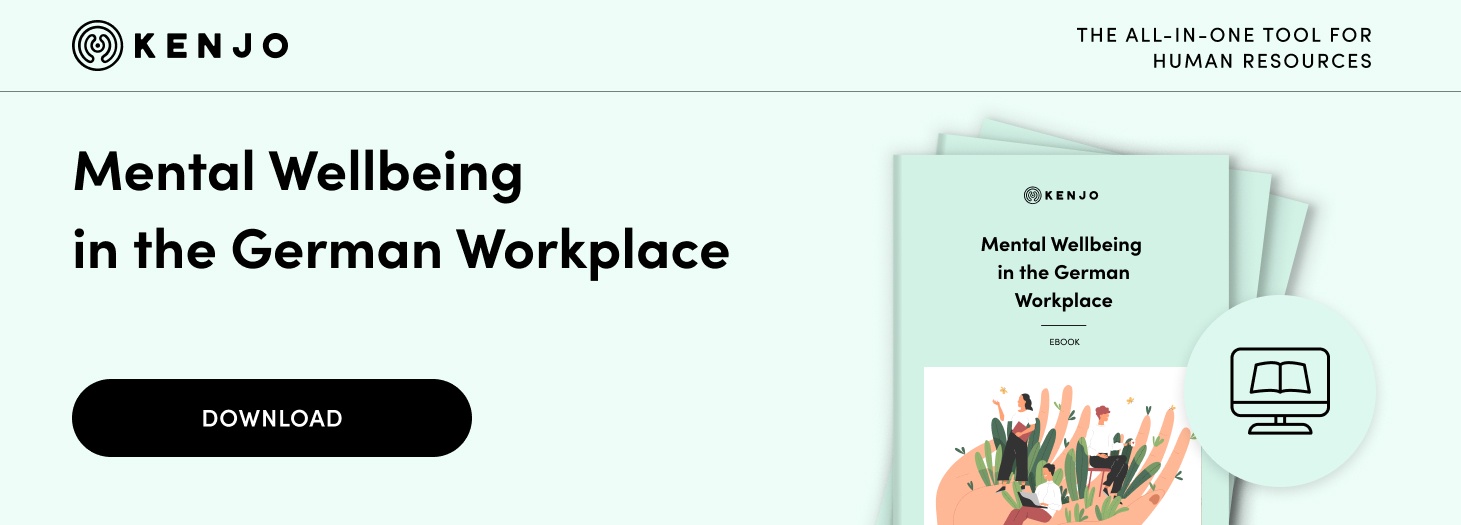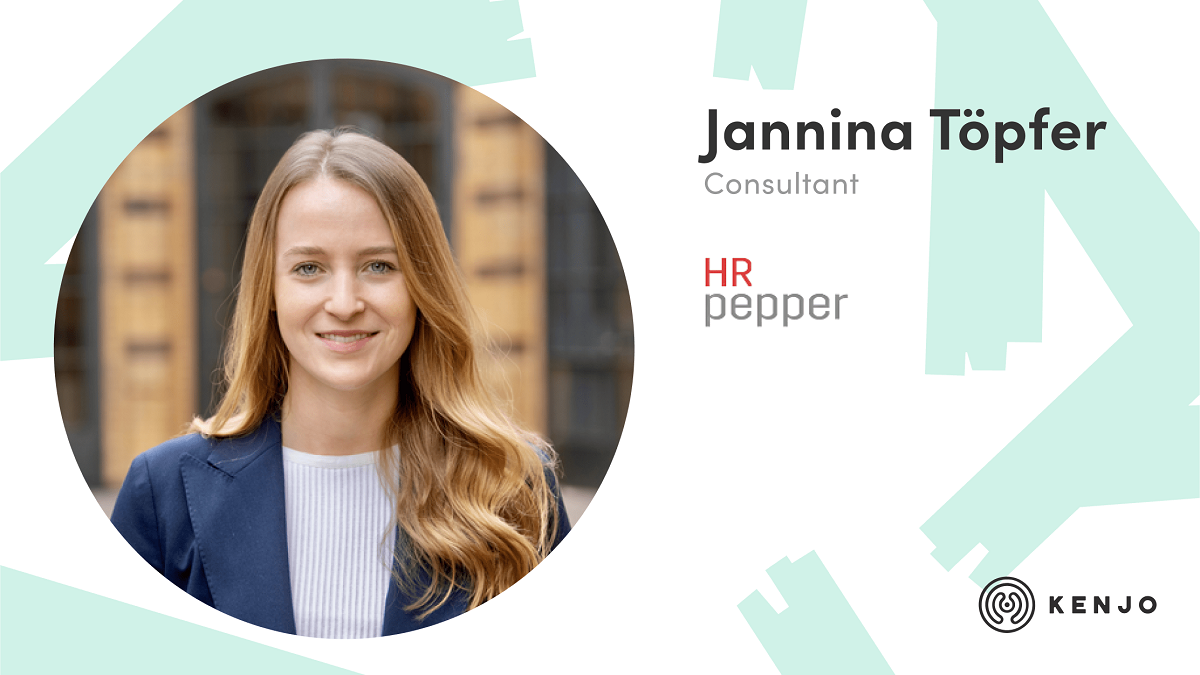If you look at the statistics on mental illness in Germany, it is clear there is a worrying problem. The number of days of absence due to mental illness among employees, for example, has more than tripled in the last twenty years and one in two early retirements is said to be due to this reason.
It is often argued that the escalating numbers are due to evolving awareness, diagnosis and acknowledgement of mental health in society. However, for HRpepper's management consultants, the numbers are too high, whatever the reason.
In our interview, HRpepper’s consultant Jannina Töpfer advises how organisations can take the right precautionary steps for mental health.
As a transformation consultancy, why do you deal with the topic of mental health?
At HRpepper, we specialise in making organisations fit for the future and supporting them through all forms of transformations. People are our focus in all our projects, so the topic of mental health is always relevant - especially when it comes to major changes.
On the one hand, for example, we design HR policies and procedures individually for companies. Here, it is crucial that HR makes the greatest possible contribution to achieving the organisation's goals, and this naturally includes employee health and safety.
On the other hand, we also consider the topic in the context of transformation projects, as we accompany people through change over the long term. Change can mean, among other things, a new environment, new structures and new ways of working, and is usually outside the control and comfort zone of individual employees.
A study by Dohrenwend from 2006 shows that major changes can put people under great stress and are psychologically very stressful. That is why it is especially important to consider employee health during transformations.
What typical stress factors do people experience in organisations?
Today's society is very performance-driven and employees constantly put themselves on a kind of "alert" in order to do justice to this. A phrase I like to use here is:
"It's all about balance."
Jannina Töpfer - Consultant at HRpepper
Mental danger moments only occur when the balancing components in everyday life are too low. The so-called stressors, i.e. situations in which professional tensions predominate, can have a negative impact on our physical and mental health if they persist for a long time.
In everyday working life, many different factors that can have an impact on mental health can be recognised and felt by everyone. Decisive factors can be
- Tight schedules and time stress,
- unclear job descriptions,
- under- or over-demanding situations,
- disrespect,
- differences of opinion in the team,
- lack of professional security and appreciation,
- lack of team cohesion,
- but also pre-existing psychological situations such as low self-esteem, or perfectionism, etc.
We mustn’t neglect the corporate culture and a company’s underlying values, which can be reflected, for example, in an oppressive working atmosphere or an outdated management style.
In our consulting projects we observe the following developments in the working environment and talk about them with project managers and executives in order to create an awareness of possible stressors:
- Densification of work tasks due to process changes or HR savings.
- Acceleration of work processes through faster changes and new communication techniques.
- Change in the social working environment, through home office or hybrid working.
- Increasing need for stronger networking of teams and work processes and resulting unclear decision-making structures, leading to opacity & loss of control.
- Development of an increased need for meaningful work and personal identification with the product or service.

As a result, we have noticed an increase in requests for the conception and implementation of development programmes for managers and employees at all levels. Here, we develop individually tailored training formats on topics such as agile leadership, stress management, resilience, psychological safety, appreciative leadership or similar to address internal challenges.
Why should mental health not be a taboo subject in the workplace?
It should not be a taboo topic because physical illnesses, whether it be a cold or a broken leg, are taken for granted as reasons to miss work. Mental illnesses, such as depression or burnout, are not personal weaknesses that should be hidden or condemned.
Some people are probably better at noticing the body's warning signals (migraines, fatigue, back pain, etc) and regularly do preventive compensatory activities (mindfulness practices, physical fitness, time with family, rest periods, etc). Of course, this is all subjective and there is no one thing that helps us all equally.
It is a process of finding out what one's body needs to come into balance. However, if medical conditions are recognised early, they can be treated well with the right remedies and those affected are not restricted in their work. In the best case, they can be avoided altogether by preventive action in the organisation.
What are the consequences of not promoting mental health in the workplace?
Many people are reluctant to talk about mental illness. This is sometimes out of shame, but often also out of fear of exclusion or negative consequences such as restrictions on their career opportunities.
If signs or even illnesses remain undetected, employees' general satisfaction and motivation to work decreases. The quality of individual work processes decreases, while processing times continuously increase, which can have long-term economic consequences for a company.
It is a process to find out what employees need in order to find their own balance. This is the starting point for a company to establish various measures to support employees in this process.
For example, in addition to my work as a consultant, I am a trained yoga teacher and have found the techniques I need to achieve balance and can therefore say that the search is worthwhile.
Can artificial intelligence be used to improve mental health?
I think if someone had told us before the pandemic that we would soon be working only from home for over a year, no one would have believed it. In the same way, most people probably can't imagine talking to a robot about their own mental problems. But precisely because of the pandemic and current digital developments, we are more open-minded than ever to innovative solutions.
We have all introduced countless new collaborative tools in the last year and have now become accustomed to these wonderful possibilities. There has been greater acceptance and, for me personally, also curiosity about the exciting ways in which technologies can help us in the future. I mean, who doesn't talk to Alexa or Siri these days?
According to the new AI@Work study by Oracle and Workplace Intelligence, AI is in its infancy as a solution to support mental health, but a key finding is that sufferers prefer to accept help from AI-assisted therapists rather than other people. Participants here assume a judgement-free zone and expect quicker solutions.
Basically, I would like to focus here on the idea of reducing the stress level in everyday work through AI tools for the time being. This could involve
- reduction in workload
- or help with prioritising tasks
- to counteract the development of illnesses such as burnout.
Thank you for your tips on how to promote mental health in the workplace!
About Jannina 
Jannina Töpfer accompanies companies in cultural changes, the design of HR development measures and the development of sustainable organisational models and (HR) processes. She is fascinated by how organisational culture determines the way people work together. With her passionate adaptive approach to organisational, process and people changes and her empathic nature, she manages to implement a wide variety of people-centred projects, making the world of work better every day.



